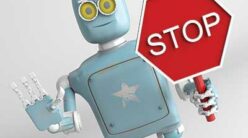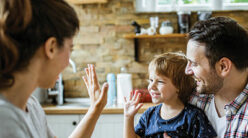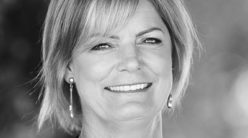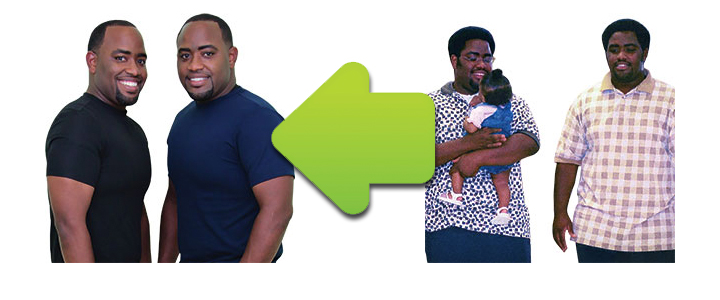How lucky can a person be, anyway? Five years’ worth of lucky? That’s the target date most oncologists quote for official membership as a breast cancer survivor. Really, the buildup begins at three years running. You start to feel a tingle of hope. Four years? Now, that’s different. You might as well forget the tingle and confess downright anticipation. It’s the ultimate home stretch.
By the time you reach that fabulous five years, that splendid 60 months, that outstanding 1,825 days, there are no more nasty question marks or “maybes.” You puff out your chest (for once unconcerned that it’s lopsided), and you add a pleasing exclamation point to that chapter of your life. Five years! Time to turn the page and forget words like cancer, adriamyacin, recurrence. Life is waiting.
If someone (namely, yours truly) were to compare arriving on the other side of five years with winning the Boston Marathon, what does making it to 10 years seem like? I don’t know.
Nineteen ninety-eight was not my lucky number. Once again I found myself at the starting gate of a brand-new cancer marathon, but I am not the same person. For one thing, I realize survival has nothing to do with numbers and everything to do with attitude.
Against the Odds
The odds of my getting breast cancer the first time might have been important–back then. Our small-town hospital ran a January sale on speechless doctors that year. Even the top-gun oncologist who visited on a regular basis was a bit stymied by my predicament. You see, the numbers just didn’t add up; 26 years old plus zero risk groups should never have equaled twin stage-three tumors plus seven positive lymph nodes.
Eventually I convinced people (myself included) to stop doing the math. Stop asking “Why?” and start asking “Why not?” Cancer doesn’t respect risk groups. It doesn’t consider that you have a husband and three young kids and plans for the future. Believe me, cancer couldn’t care less if you’re the one in charge of the church’s annual spaghetti supper. All numbers aside, cancer simply shows up at the mara-thon, determined to outpace you.
It Really Is About Winning and Losing
At 26, turning 27, I wasn’t sure if I had the right stuff to be a winner. Chemotherapy was grueling; days spent draped over the toilet, nights spent secretly doubting if I’d ever wave my son off to college or cry my daughters down the wedding aisle.
At thirtysomething I know I’m a winner. Why? Because cancer . . . again means nobody can guarantee me another 40 years. For that matter, nobody can guarantee me next Christmas. The fact that I’ve chosen to face my own death isn’t morbid. From where I stand, it’s a great motivator; to do what you’ve always wanted to do, to spend more time saying hello than waving goodbye, to smile often and cry often because both purify the soul. I guess you could say I’ve taken a good, hard look at the mystery of death and it’s nothing compared to the wonder of life. My gaze has been turned perpetually forward. Everybody should be so lucky!
Hair Today, Gone Tomorrow
Nine years ago living without hair wasn’t a hurdle; it was a bonafide valley experience. I avoided that bald person to the point where I wouldn’t invite her anywhere. No one, outside of my poor husband, was allowed to see her. It was a numbers game again; 12 months minus hair should just about equal 40, maybe even 50, more years.
Looking back, I now realize I wasn’t “living without hair,” I “existed without hair.” There’s a difference, an attitude-shaped difference that doesn’t always fit as comfortably as a well-worn baseball cap. Cancer . . . again means I’m bald. . . again. Humanly, I don’t think it’s possible to get used to the way people stare. There are days when I’d rather not cause a dozen cases of whiplash just trekking through the grocery store. But what they see–no hair, no eyebrows, no eyelashes–concerns me less than whom they see.
I am a person living with cancer. Yes, this disease has hit hard and left its mark. I say, hit back! with the full intention of leaving your own mark. Every time I walk out my door, I am reminded there are people (a lot of people) who would just as soon forget cancer happens. The reality is that unless they encounter an unforgettable example of what cancer can’t do, they’ll never change their mind. I’ve adopted the attitude that I’m being well used. Everybody should be so lucky!
The Helping Hand
If you’re perched on the edge of your seat inanticipation of reading rave reviews on how people helped me through cancer, you’d better skip this section. Don’t get me wrong; I could write a book about random acts of kindness–child care, meals-on-wheels, greeting cards, maid service. If nothing else, breast cancer at 26 was a humbling experience.
Cancer . . . again is no different, but I sure look at it with a new perspective. There’s no getting around the fact that strangers have seen my scars and friends have cleaned my toilet. The very nature of cancer makes us vulnerable. Still, beyond the physical limitations, there is an entire world of opportunity.
Deciding to help other people through my cancer experience has enabled me to accentuate the positive, even when I can’t entirely eliminate the negative. The old adage “Laugh and the world laughs with you, weep and you weep alone” is true–but only if you allow cancer to build barriers.
I pop in on my toddler’s class at church as if stockpiling frequent flier miles. At first they were afraid of me. Gradually I’ve helped them learn there’s nothing scary about “that lady in a hat.” It took a willingness to make myself vulnerable, though. Every time one of them asked, “Is your hair back yet?” I had to take off my hat and show them–regardless of how many adults were around.
My 11-year-old daughter struggled every time I faced a new chemotherapy treatment because she knew I’d be sick for days afterward. Her way of coping was to raise money for the American Cancer Society by accepting donations (begging for them may be more accurate). Afterward, when they needed somewhere for that money to go, I opened up my hospital room during a chemo treatment so that a group of talkative, gangly sixth graders could deliver flowers (many other patients were blessed in the same way).
So where is the helping part of that story? It’s in getting your picture taken for the paper when you’re positively feeling the most vulnerable. It’s in imagining dozens of dinnertime conversations about Katlyn’s mom. It’s in watching a child give up the $2.47 she had painstakingly saved because she wanted to, not because anyone made her.
Whether it’s putting yourself in front of a middle-school classroom without knowing what kind of cancer questions they’ll ask, or meeting your son’s girlfriend for the first time totally bald and in pain, the remarkable healing power of helping others is worth it. Everybody should be so lucky!
Give Me a Break!
Yeah, I’ve felt that way sometimes during this past six months, but I’m not going to write about me here. These words are for the doctors, nurses, lab technicians, and receptionists who have been on the job a lot longer than six months.
A little appreciation goes a long way. Words of support when the IV equipment fails for the third time, rib-tickling jokes even after they’ve stuck you in all the wrong places searching for a good vein, plates of warm cookies . . . The ways of showing how much you value those caring for you during cancer treatment are innumerable. Most of them require little prep time. Yet, I’ve observed such nuggets of encouragement are rarely offered.
Think about it. Cancer is an everyday experience for them, too, and has been since way before mutant-free radicals started to grow inside the patients they care for. Your oncologist has undoubtedly lost more patients than the number he has been able to heal.
Your chemotherapy nurses knowingly administer drugs that will make you incredibly ill–before they make you incredibly grateful. Your primary-care physician takes a Sunday morning phone call when the taxol sends you spiraling toward morphine-grade pain, and shakes his head in genuine compassion when later you regret to tell him even the morphine wasn’t enough. He wants to help, but sometimes can’t.
They all want to help; that’s why they chose health care in the first place. Yet I wonder if the burden of what they do as frontline soldiers in the great cancer battle sometimes doesn’t outweigh the satisfaction. In large part, it is the confidence we express (verbally and emotionally) that keeps them motivated to do their very best.
Well-meaning people have been intent on persuading me to travel the few hundred miles from my home in northern Minnesota to the world-renowned Mayo Clinic, where “they have the latest and greatest in doctors, medicine, etc.” Rochester was within easy reach (and will be if ever I need to go there). While it still remains a choice, I choose to be cared for by people from “home,” people whom I meet in the Dairy Queen, people who might just need a bald cheerleader on their team. I have, and will continue to shout it from the rooftops that my caregivers are the best! Everybody should be so lucky!
Tamoxifen Is My Friend
I didn’t think so nine years ago. At such a “tender age,” hormone therapy was nearly as awful as chemotherapy. My 26-year-old body didn’t want to be involved in a head-on collision with menopause. Hot flashes, night sweats, roller-coaster ups and downs, extra pounds. You name it; I had it!
Guess what. Cancer . . . again means I get to take tamoxifen . . . again. In fact, they were writing the prescription before I even woke up from surgery. Nobody actually said, “I told you so,” but the oncologist did point out that I should not risk removing myself from hormone therapy this time.
Tests determined that my breast cancer (not a recurrence, but two brand-new cancers) thrives on estrogen. No test could determine what kind of difference nine years would make. Logically, my response should have been more favorable. Wickedly, the side effects have been worse.
Number-wise, 40 or more hot flashes on a 24/7 basis should equal misery. Some days it does. Some nights, at its worst, the blistering heat-to-arctic-shivers cycle repeats every 15 minutes. At its best, the cycle is hour to hour, and I endure because it’s not about the numbers. It’s about the attitude.
Have I been scared into sticking with the tamoxifen, as if taking it or not taking it is like playing or not playing Russian Roulette? No, I’m not scared. Would I willingly serve a full five-year sentence, even without my oncologist’s promise for medication to ease the side effects now that I’m finished with chemo? Yes, I am willing.
I guess I’ve done a lot of growing up in nine years. What once was frustrating is now bearable. Tamoxifen is my friend because it’s the best chance I have of beating this thing. Not long ago, women died waiting for researchers to develop a drug like tamoxifen. I am living with cancer in an era when there is more medical hope than ever. Everybody should be so lucky!
Choices, Choices
Life is short; eat dessert first! Life is short; play first and exercise later. If I were reading this article rather than writing it, these would be the “squirmy, uncomfortable, quit reading or you’ll feel guilty” paragraphs. It’s sort of like munching on candy while you page through a fitness magazine. (Gulp.) Or stepping on the scale at the doctor’s office for your preop checkup. (Double gulp.)
Hindsight isn’t a microscope; it’s a wide-angle lens on the camera of life. One look at the panoramic view of these past nine years tells me I’ve had plenty of time to change my lifestyle and eating habits. I’m not talking about dieting to fit into size 6 jeans because it feels good to be skinny. I’m talking about getting healthy because life feels good.
I don’t trust that the changes will be easy, but if I can brave chemotherapy, I can surely say no to extra-everything pizza. If I can prevail against radiation treatments, I can surely beat back the wimpy excuses against exercising. My attitude has done an about-face. I’m taking a panoramic picture of the future, and it definitely includes doing whatever I can do to attain a healthier lifestyle. You know, I really like what I see emerging from tomor row’s horizon. Everybody should be so lucky!
How lucky can a person be, anyway? Nine years ago I told people if offered a choice I wouldn’t give the cancer back, because I had learned so much about myself and about life. Five years came. . . and went. At six years I considered myself lucky. At eight years I became a hospice volunteer and knew without a doubt that I was lucky.
Cancer . . . again means a whole new perspective. I’m not lucky. I am blessed. I’m not a survivor. I am an overcomer. This isn’t a valley experience. It’s a mountain in my path and yes, I am going to climb it. When it comes to my battle with cancer, no matter who wins or when or how, I will claim victory!







